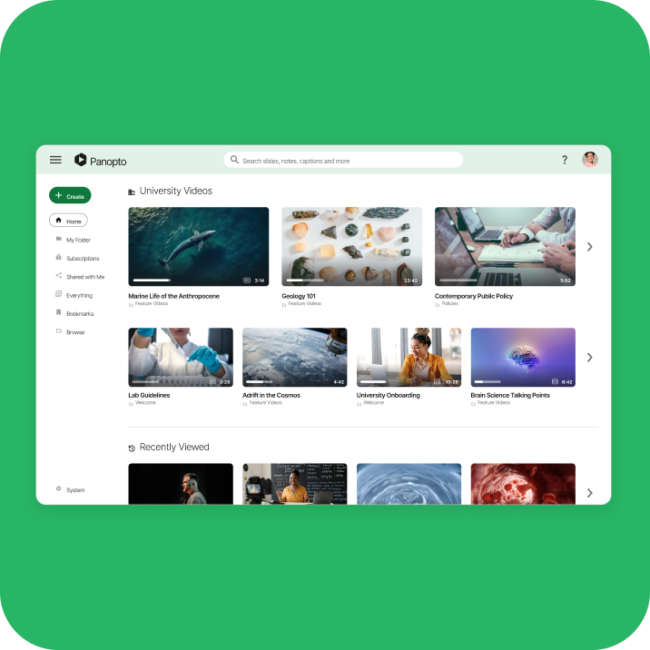Capturing And Extending Learning Through Mobile Technology
Mobile Recording Technology Extends the Classroom to China and Beyond
Durham, NC – December 9, 2011 | By Cara Bonnett
[Reprinted from Duke Today] When Duke professor David Boyd visited China for two weeks this fall, multimedia recording technology allowed him to continue teaching his students from halfway around the world.
Students in his “Vulnerable Populations and Global Health” class used video capture technology to record their group presentations on AIDS in Africa for Boyd, who traveled to several Chinese cities to meet with international partners and research collaborators.
“He watched these student presentations from his hotel room in China and left time-stamped critiques for his students about the content and delivery style of their presentations,” said Marc Sperber, an educational technologies consultant with the Duke Global Health Institute.
Boyd is just one of a growing number of Duke faculty using mobile capture — technology that records videos of classroom lectures or events that can be streamed online, alongside supplementary slides — to extend learning in creative ways.
Use of the DukeCapture service, available through Duke’s Office of Information Technology, has grown exponentially in the past year, with an average of 50 to 60 events captured every day, said IT analyst Todd Stabley, who works with departments to help set up DukeCapture. The service uses Panopto software.
Faculty, students and staff can record classes, events and presentations using simple software that can be installed on any personal computer. Presenters and viewers can edit and mark up the recordings with notes (shared or private) and can search that text, along with text in accompanying slides. Recordings are uploaded and automatically published to central Duke servers.
The uses have expanded with the technology, Sperber said. In addition to recording all of DGHI’s guest lectures and special seminars and making them available for public viewing, several DGHI faculty members have expressed an interest in using mobile capture to record mini-lectures they can deliver to students outside of class so they can use in-class time for activities and discussion.
“We are using Panopto this year to capture and edit video that we can deliver in small nuggets to students online,” Sperber said. “It can auto-index text on presentation slides, which improves the navigation and searchability of individual presentations, it stores all of its recordings in a searchable catalog, and it offers a simple web-based editing tool that allows non-technical support personnel to easily trim recordings into few-minute segments.”
In medical education, departments and programs — including geriatrics, psychiatry, emergency medicine, radiology and clinical research — are adding new content daily, with almost 10,000 views to date, said Sharon Kaiser, multimedia and user services specialist.
The technology “makes recording — audio, video and screen — easy to use, edit, store and share,” said Alisa Nagler, assistant dean of Graduate Medical Education, which has used DukeCapture to record virtual tours, meetings and lectures highlighting best practices.
DukeCapture also allows users to stream events live for viewers at another location. At Duke’s Marine Lab in Beaufort, for example, doctoral students have used the technology to connect live with their colleagues on the Durham campus for a weekly seminar series. Other students have used the recordings to catch up with classes on the plane trip home from job interviews or as review in preparation for an exam.
“It’s easy to install and get started,” said Jeffrey Priddy, manager of information systems at the Marine Lab. “It’s very accessible to people who are at least a little bit tech-savvy.”
Find out more about the DukeCapture recording service on the OIT website.
© 2011 Office of Communication Services
705 Broad Street, Box 90496, Durham, NC 27708



